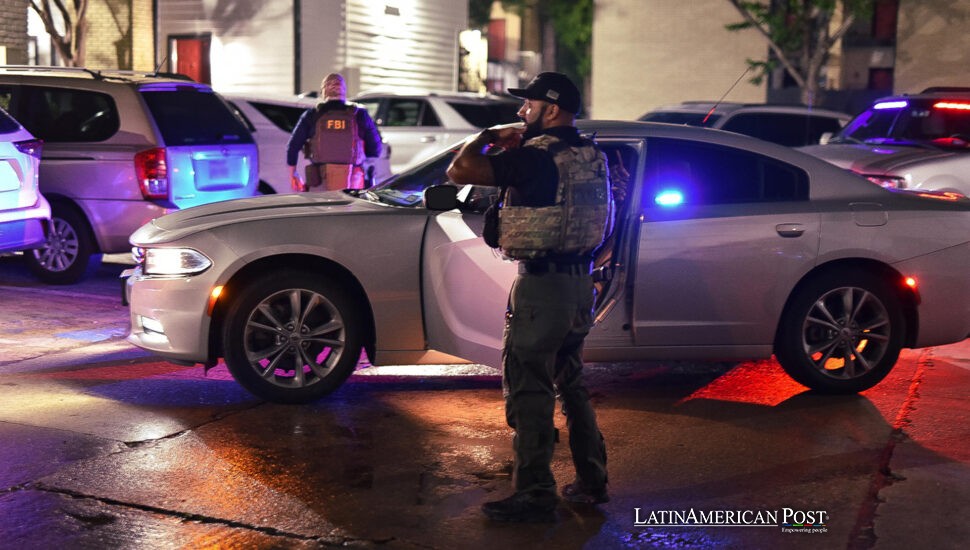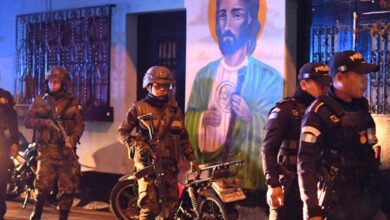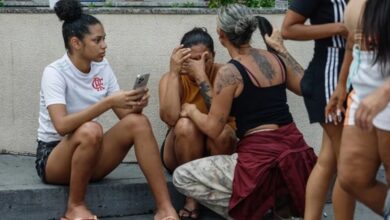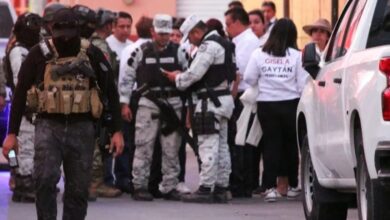Mexican Teen Battles Police Misstep Threatening American Dream

A minor traffic stop in Georgia escalated into a life-altering ordeal for a 19-year-old Mexican student. Now, despite a dropped charge and an admitted police error, she remains detained and faces possible deportation, exposing gaps in America’s immigration system.
A Routine Traffic Stop Gone Wrong
It all began in the northern Georgia town of Dalton, known as the “Carpet Capital of the World” for its thriving textile industry. Nineteen-year-old Ximena Arias Cristóbal arrived in the United States from Mexico at four and was heading home when blue lights flashed behind her. The officer on duty claimed Ximena made an improper turn—an allegation later proving untrue. In an interview with EFE, officials from the Dalton Police Department admitted that Ximena’s vehicle was simply a look-alike of the actual offender’s car, and they had detained the wrong driver.
Yet, the damage had been done by the time authorities realized their mistake. Because Ximena did not have legal status in the United States, she was transferred into the custody of Immigration and Customs Enforcement (ICE). Despite the police dropping charges just a week later, ICE still moved forward with deportation proceedings. For Ximena, this single moment threatens to uproot her entire life in the only country she has ever truly known.
“I feel anger, frustration, and sadness,” said her mother, Dahita Cristóbal, in Spanish to EFE, lamenting that a police mistake has placed her daughter in a detention center. According to Dahita, Ximena is a model student with no criminal history, making the situation even more incomprehensible.
A Bright Student in Limbo
Ximena, now confined at the Stewart Detention Center in Lumpkin, southwest Georgia, has been denied the chance to continue her college courses. Having lived in the United States since she was four, she had no control over her immigration status or a clear path to rectify it. She missed the window to apply for the Deferred Action for Childhood Arrivals (DACA) program when the government stopped accepting new applications.
Her mother speaks of Ximena’s ambitions: a future dedicated to education, possibly pursuing a career in nursing or teaching. Those dreams are now on hold as she waits in a facility many miles from the campus she once hoped to call her stepping stone to success.
As a glimmer of good news amid these challenges, Ximena’s father, José Arias Tovar, was recently granted release on bond by an immigration judge. He had been held in the same detention center on charges of driving without a license and speeding—offenses that also placed his legal status in jeopardy. That victory has provided her family with a sliver of hope: if a judge freed her father, perhaps Ximena will soon follow.
Dahita stated, “This is the place we live.” Dahita described Ximena’s childhood in Dalton. Ximena went to schools in the local area and developed connections with people in the community. This situation remains unbelievable to Dahita and Ximena. An apology does not repair the damage to their lives.

Community Outrage in Dalton
The heartbreaking error committed by the local police has caused an uproar in the Latino community of Dalton. Many residents know Ximena and her family personally or have heard their story through word of mouth. Rallies have sprouted up across town, attracting people of various ethnic backgrounds, all united in demanding Ximena’s immediate release.
According to EFE interviews with local activists, supporters have raised over $85,000 to cover Ximena’s legal fees. Groups that defend immigrant rights and civil freedoms united to support her. They arranged demonstrations and held candlelight gatherings. The actions are quiet, yet they serve as potent notifications of the human suffering caused by an imperfect immigration setup, plus possible racial bias in police work.
People shared that they also feel at risk in a place where automobile stops may cause immigration inspections. This can considerably change a person’s life. Several activists told EFE that Dalton’s Latino community greatly benefits the local economy. It is essential in the carpet and manufacturing businesses. They say detaining young students like Ximena only fuels fear in a community that has otherwise worked hard to achieve stability.
Legal Hurdles and Family Hope
Despite the police department’s admission of having stopped the wrong car, ICE maintains its intention to deport Ximena because she is “an undocumented immigrant,” an ICE spokesman told EFE. People criticize policies. Those policies permit local law enforcement agencies to cooperate with Immigration and Customs Enforcement. The result is severe punishments for minor or unproven violations, according to the critics.
Attorney Dustin Baxter heads Ximena’s legal team, which works toward securing her release on bond. Her history is good, she has connections to the local area, and she has done well in school. The legal team discusses each item. Baxter took to social media to point out the broader implications of her case: “It is a powerful reminder of the true human cost of a broken immigration system,” he wrote.
Family and friends are optimistic that she will see the same outcome as her father—who was recently bonded out—though no guarantee has been offered. Ximena’s case goes before an immigration judge soon. Support letters from teachers, classmates, neighbors, and church members arrived before the hearing. The letters state her good character and ability.
A Broader Call for Immigration Reform
For many activists, Ximena’s story underscores the urgency of comprehensive immigration reform—one that addresses the needs of individuals who have lived in the United States for most of their lives and, in many cases, know no other home. The fact that Ximena never had a chance to regularize her status, even through DACA, speaks to the administrative and legislative hurdles that continue to leave millions in limbo.
Ximena’s trouble gives undocumented teenagers across the country a bad feeling. Whether correct or not, a simple traffic stop becomes a big event that changes their lives. It causes them to be separated from family and the life they understand. Advocates point out that resolving this issue requires more than local apologies or piecemeal solutions—it calls for legislative action at the federal level.
Also Read: Argentina’s Frozen Mystery: The Unresolved Fate of Dr. Janet Johnson
Meanwhile, the teenager waits in detention, cut off from her college education and everyday life. Her family stands outside the detention center or shows up in court, hoping for a chance to welcome her home. Dalton’s Latino community supports her. The community emphasizes a basic fact. One mistake in judgment is not appropriate. The mistake occurred because a police officer pulled over the incorrect vehicle, as the officer admitted. This error should not determine the future of a talented young woman with much potential and many ambitions.





